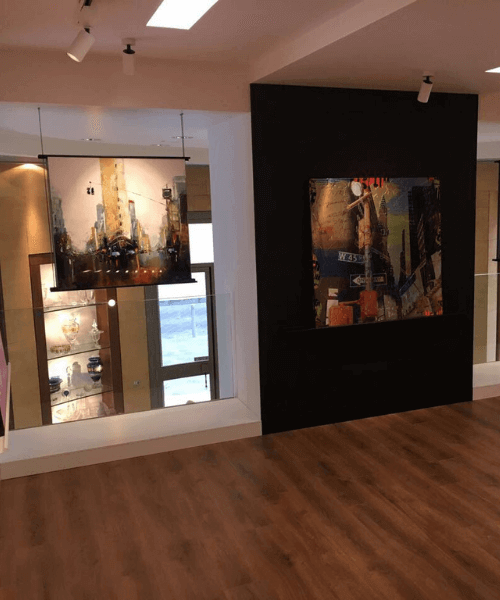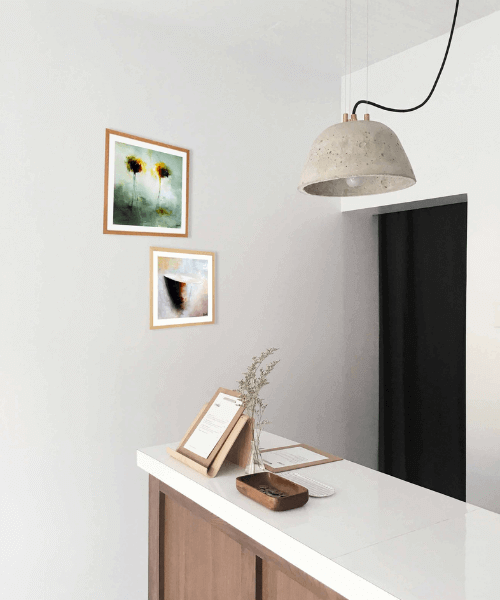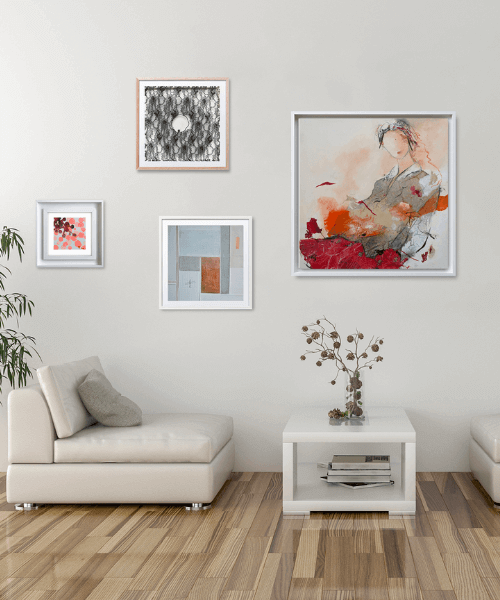Artwork taxation: how is your artistic heritage taxed?
The purchase and sale of a work on the art market is subject to VAT and in some cases subject to tax.
Conversely, the possession of works of art does not enter into taxation (exemption from wealth tax until 2017 and exclusion from the IFI base since 2018). Certain operations benefiting from a tax exemption or a tax deduction.
What is the taxation of a work of art? We look in detail.
Summary
Artwork taxation: VAT when purchasin
Artwork tax: flat-rate tax or tax on capital gains on a sale
Taxation of an artwork in the event of inheritance
Taxation of an artwork: a tax deduction for companies
To learn more about acquiring a work of art, see our articles:
Artwork taxation: VAT when purchasing
The purchase of an artwork is subject to VAT. This tax is the responsibility of the buyer. The rate applied is 20%.
This rate can be lowered to 5.5%, if the acquisition takes place in France or outside the European Union. The 5.5% VAT rate is also applied for an acquisition made directly from the artist or his beneficiaries.
No VAT is applicable if the purchase is made from a seller who is not subject to VAT.
Artwork tax: flat-rate tax or tax on capital gains on a sale
When selling works of art in France, the seller can choose between:- a flat-rate tax on metals and other precious objects;
- a capital gain tax (general regime).
By works of art we mean:
- antiques;
- collectibles;
- precious metals;
- jewelry.
If the transfer of objects does not exceed 5,000 euros, it is not taxed.
This exemption does not apply to precious metals, which are taxable from the first euro and do not benefit from an allowance.
The flat-rate tax on the sale of an artwork
The sale of works of art whose amount exceeds 5,000 euros is subject to a flat-rate tax proportional to the sale price (article 150 VI of the General Tax Code).This levy amounts to 6.5% of the sale price. The tax rate is 11.5% of the gross amount of the sale for precious metals.
The flat-rate tax on transfers or exports of precious metals is borne by the seller or the exporter.
It is declared by means of tax form No. 2091-SD.


The capital gain tax on the sale of an artwork
In accordance with article 150 VL of the CGI, the seller of an artwork can expressly choose the option for the general system of taxation of capital gains.
In this configuration, the capital gain tax rate is 36.2% (19% tax plus 17.2% social security contributions). A reduction of 5% per year of ownership applies to the capital gain from the second year.
Beyond twenty-two years of holding, the capital gain benefits from a total exemption from income tax.
The capital gains tax is borne by the seller or the exporter.
Its declaration is made by means of the tax form n ° 2092-SD.
Sale of artworks tax exemptions
The transfer of artworks is exempt in the following cases: • sales for the benefit of a “museum of France”, a State archives service or a public library; • sales of works for which the sale price is less than 5,000 euros • sales made by a seller who does not have his tax domicile in France.
Taxation of artworks in the event of inheritance
In the context of an inheritance, works of art can be qualified as such or assimilated to furniture (5% flat rate). In both cases, they are subject to transfer or inheritance tax.
The valuation of the market value of works of art or collectibles can be based on:
- the price expressed in the deeds of sale (public sale occurring within 2 years of death);
- the estimate appearing in the legal inventory established within 5 years of death;
- the price appearing on insurance contracts concluded less than 10 years before death.
This exemption put in place by the law on donations (December 31, 1968) is framed by article 1131 of the CGI.
Taxation of an artwork: a tax deduction for companies
Some businesses may benefit from a tax deduction for the purchase of artworks.
These are companies subject to corporation tax (automatically or optionally) and sole proprietorships subject to income tax in the BIC category. Liberal professions are excluded from this system.
Indeed, the company must have a special reserve account on the liabilities side to which to transfer the deductible acquisition price.
Acquisition of artworks by the company: a conditional tax deduction
The purchase of a work of art by a company gives rise to a tax deduction. Here are the conditions.
- The art object can be a work or a musical instrument.
- The work must be acquired from a living artist, either directly or through a professional in the art market.
- The work must be entrusted to a museum or exhibited in a place accessible to the public or to company employees for 5 years.
- The musical instrument must be loaned free of charge to performers who request it.
If the company falls under the normal real regime, it deducts the sums from table 2058-A (Cerfa tax package n ° 10951). If the company falls under the simplified tax regime, it deducts the sums from the table n ° 2033-B (Cerfa tax package n ° 10957).
This deduction is spread over 5 years. The sums are deductible up to the limit of 10,000 euros or 5 chiffre of turnover excluding tax above 10,000 euros.
The acquisition price excluding VAT of the work or instrument serves as the basis for deduction.
Corporate sponsorship: calculation of the tax deduction for the purchase of an artwork.
Complementary articles:
On the sujet:
Understanding the art market
Find out more:







